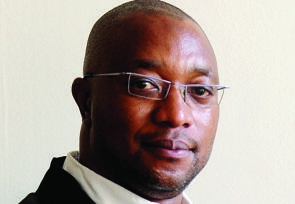
In the past, companies spent large amounts of money on talent development.
Now they simply buy that talent by employing consultants who do the job more quickly and perhaps more efficiently.
Through yesterday’s eyes this phenomenon may look short-sighted, but it makes perfect sense considering the pressure to perform that has been exerted on executives.
Some experts say the reason companies around the world are spending less and less on training is because they actually do not know the skills that they will need in the future.
The rapid change in technology is making jobs obsolete almost on a daily basis.
Historically, people got an education because they were hoping for a better paying job. Indeed for a long time graduates were paid more, but abundance reduces exclusivity, so tertiary education lost its status as more people got degrees.
Tenderpreneurship and political deployment further reduced the skills premium. It is people with better social skills that earn more than those with technical skills. In local speak, the skilled person earns far less than the person who won the tender.
South African youth have a double whammy – firstly, our poor education system is putting them at a major disadvantage. Secondly, the country’s lousy work ethic and demand for higher salaries immediately shuts them out of low-skilled jobs, which are quickly filled by foreign nationals.
In the world of automation and artificial intelligence, massive unemployment and general discontent often play themselves out as service-delivery protests.
According to Paul Williams, associate professor of international affairs at the Elliot School of International Affairs in the US, there were more than 600 armed conflicts in Africa last year. Idle young men provide an endless supply of soldiers.
So education is no longer a matter of goodwill and care for society, but a strategic asset for peace and stability.
It has to be free. Some economists argue that free education is the cheapest form of economic stimulus because when people are well educated they adapt to their changing world, create businesses and employ more people, whereas it is often impossible to repurpose infrastructural white elephants.
The sad reality is that politics is about power and, as we have seen all over the world, it is about the power to amass for self, friends and sometimes relatives.
Politics is not about service to the people. As some people say, if you want service, go to a restaurant near you.
The vices of capitalism have permeated every facet of society, leaving the collective act of human progress to the vagaries of the financial markets, which means that the progress of your very own child is now left to the whims of speculators.
The issue of state capture by business will never end, so it goes without saying that we need a more deeply philosophical concept to separate business from the state – in the same way that the state is now separate from the church.
Business will pour money only where it will reap the most profits in the shortest possible time. The state, however, has to look at both the immediate and long-term benefits to the people, even if there is no financial benefit.
It should not relegate any of its citizens to the fringes for them to wilt and die. It should leave no one behind.
The classroom alone is not the answer to all the challenges facing the country’s education. The workplace is the right place to start. Unions and employers must abandon the adversarial paradigm on which their relationship is founded.
Employers know the problems that they will face in the future and they can discuss this in a new skills forum, which will help prepare the workers before the technological storms destroy jobs.
We need to create a culture of curiosity, and the hunger for self-empowerment. It is only when our people have an insatiable desire to be the best that Africa will progress.
Kuzwayo is the founder of Ignitive, an advertising agency




 Publications
Publications
 Partners
Partners








